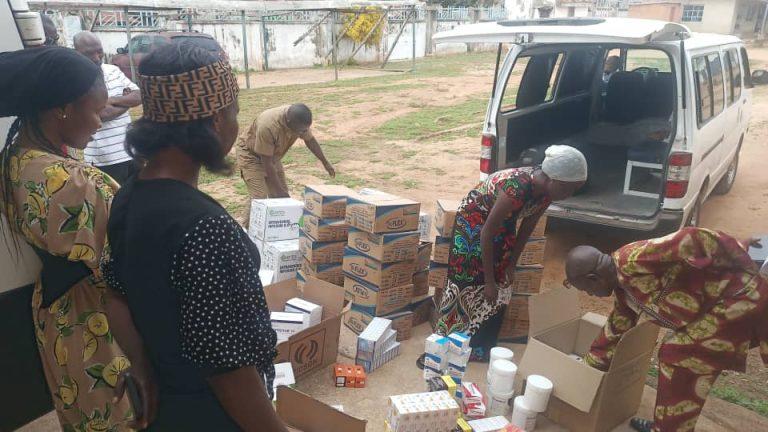Kogi State Government has recently distributed free malaria drugs and malaria test kits across public health facilities in the state to enhance the fight against malaria.
According to the Executive Secretary of Kogi State Drugs and Medical Supplies Management Agency, pharmacist Salamat Ibrahim the move also aims to improve public health in the state.
Salamat expressed her appreciation to the governor of the state, Ahmed Ododo for his unwavering support for the agency and remarkable achievements in the health sector.
She also lauded the Honourable Commissioner for Health, Dr. Abdulazeez Adams Adeiza’ for his relentless efforts in ensuring that drugs are consistently available and directly delivered to the health facilities for the benefit of patients.
Salamat further appreciated stakeholders involved in the supply chain system in the state and the dedicated staff of the agency (KSDMSMA).
Similarly, the Kogi government has also enhanced drug distribution with the Second Batch of Q3 deliveries.
The State’s Ministry of Health Public Relations Officer, Dorothy Onoja in a statement stressed that the development is to ensure the uninterrupted availability of essential medicines and health commodities across healthcare facilities in the state.
“This distribution encompasses a wide array of items, including tablets, capsules, syrups, suspensions, injectables, intravenous infusions, ophthalmic preparations, medical and surgical consumables, mortuary supplies, laboratory reagents, and various diagnostic materials.
“In alignment with his dedication to making quality healthcare accessible to all, His Excellency Alhaji Ahmed Usman Ododo, the Governor of Kogi State, has fortified the state’s drug distribution system by implementing a Last-Mile Delivery approach for this second batch of third-quarter distribution.
Dorothy added, “This innovative strategy ensures that medications are transported under optimal storage conditions, preserving their potency and quality throughout the delivery process.
The Last-Mile Delivery strategy not only alleviates the burden on healthcare facility staff, who previously had to travel long distances to collect supplies from central stores, but it also reduces transportation costs associated with commercial delivery services. Furthermore, this approach significantly enhances the efficiency and timeliness of the supply chain.”









